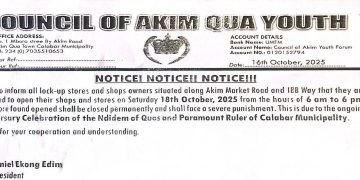…Says developers risk losing properties tied to illicit funds
By our correspondent
The Executive Chairman of the Economic and Financial Crimes Commission, EFCC, Ola Olukoyede, has warned real estate developers, insisting that the Commission will not hesitate to trace and recover properties funded with illicit money.
Speaking on Wednesday, at a policy dialogue held at the Abuja Intercontinental Hotel, Olukoyede noted that the real estate sector has become a major conduit for money laundering activities in Nigeria.
The event, tagged “Policy Dialogue on Critical Issues Affecting Nigeria’s Real Estate Ecosystem,” was organized by Law Corridor and brought together stakeholders from the public and private sectors.
According to the EFCC boss, many real estate operators fail to conduct proper due diligence on their clients, thereby unknowingly—or sometimes deliberately facilitating financial crimes.
“By virtue of what we have seen, the issue of money laundering is very rampant among real estate developers and stakeholders,” Olukoyede said.
“As a developer, the first thing that must come to your mind is KYC Know Your Customer. Even if the law hasn’t made it mandatory, do it in the interest of your business.”
Olukoyede warned that ignorance would not shield any developer found to have accepted proceeds of crime.
“If someone uses stolen money to buy a property from you and we trace it to you, we will recover it. You cannot sit on proceeds of crime. Once we establish that the money was stolen, we will follow it, trace it, and take it back,” he warned.
He called on developers to align with EFCC’s anti-corruption mandate and play by the rules, stressing that the Commission is not out to destroy legitimate businesses but to ensure accountability in the sector.
“Real estate is a major driver of economic growth, but the rules must be followed. If you want your business to survive, operate with integrity,” he added.
The EFCC chair also emphasized the need for synergy between government and private sector players to sanitize the real estate ecosystem.
“We are not your enemies. Our doors are open. When you succeed, you employ people, and fewer Nigerians are driven into crime,” he said.
In his remarks, the Director of the Special Control Unit Against Money Laundering (SCUML), Harry Erin, urged the public to conduct real estate transactions through financial institutions to avoid falling foul of anti-money laundering laws.
“Cash payments beyond certain thresholds are criminalized under Nigerian law. Even if it’s just ₦500,000, go through a bank. The lack of regulation among estate agents is disturbing,” Erin said.
“Everyone is now an estate agent. If you transact with unregistered agents, there’s no one to hold accountable if things go wrong.”
Also speaking, the Director General of the Bureau of Public Procurement (BPP), Adebowale Adedokun, called for stronger compliance measures, urging developers to demand Proof of Funds in addition to KYC.
“Where’s the money coming from? A significant chunk of investments in real estate are traceable to public sector funds. We need transparency. KYC is not enough. Ask for historical proof—how did the investor build the capacity to fund a ₦10 billion estate?” Adedokun queried.
The dialogue ended with a consensus on the urgent need for reform, tighter regulation, and multi-agency collaboration to cleanse Nigeria’s booming but vulnerable real estate sector.
























